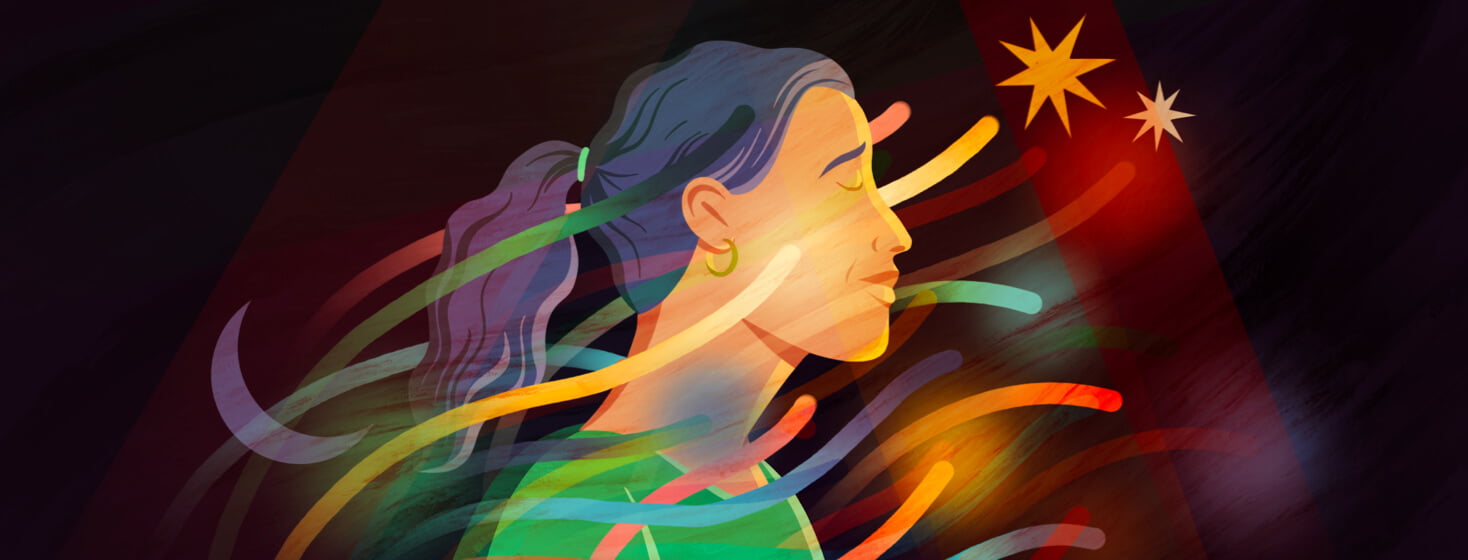Navigating Bipolar Disorder as a First-Generation Indian Woman
As a first-generation Indian woman and a licensed therapist, my journey with bipolar disorder has been both challenging and enlightening. At the age of 19, I was diagnosed with this mental health condition, marking the beginning of a tumultuous yet transformative chapter in my life.
How my bipolar disorder manifested
Bipolar disorder is a complex mental health condition characterized by extreme mood swings, ranging from manic highs to depressive lows.
For me, it manifested in episodes of hypersexuality, decreased need for sleep, and a reliance on drugs as a means of self-medication.
Reconciling my cultural identity with my illness
Growing up in an Indian household, mental health was often a taboo subject. Discussing feelings of sadness or anxiety was met with dismissiveness or shame. This cultural stigma only intensified the challenges of living with bipolar disorder, as I felt pressure to conceal my struggles from my family and community.
Hypersexuality and manic episodes
At 19, I found myself caught in a whirlwind of uncontrollable impulses and erratic behavior. I was consumed by hypersexuality, seeking validation and fulfillment in fleeting encounters.
Sleep became a luxury I no longer needed, as I spiraled into manic episodes fueled by an insatiable thirst for excitement. Drugs became my escape, a temporary reprieve from the chaos raging within me.
So much pressure
As a first-generation Indian woman, the expectations placed upon me were immense. I felt the weight of tradition and duty, yet I also grappled with the demands of my mental health. Balancing these two worlds seemed impossible, as I struggled to reconcile my cultural identity with the realities of bipolar disorder.
Mindfulness and nervous system somatic practices
In the midst of this turmoil, I turned to mindfulness and nervous system somatic practices as tools for finding balance. Mindfulness helped me cultivate awareness of my thoughts, emotions, and bodily sensations without judgment. Through mindfulness meditation, I learned to observe the fluctuations of my mood without being consumed by them, allowing me to navigate the highs and lows of bipolar disorder with greater ease.
Additionally, nervous system somatic practices, such as yoga and breathwork, became integral parts of my self-care routine. These practices helped me regulate my nervous system, soothing the heightened states of arousal associated with manic episodes and grounding me during periods of depression. By tuning into the sensations of my body, I discovered a newfound sense of stability and resilience in the face of bipolar disorder's unpredictability.
This or That
When practicing mindfulness, do you prefer to be ___.
Therapy, medication, and support for bipolar
My training as a therapist provided me with a deeper understanding of bipolar disorder, yet it also presented its own set of challenges. While I could offer support and guidance to my clients, acknowledging my own struggles required a level of vulnerability I had not yet embraced.
Living with bipolar disorder has been a journey marked by both setbacks and successes. I've faced moments of despair, where the weight of my diagnosis felt suffocating. Yet, I've also experienced moments of resilience and growth, finding solace in therapy, medication, and the unwavering support of loved ones.
Removing cultural stigma from bipolar disorder
Silence perpetuates stigma, and I refuse to let shame dictate my narrative. By sharing my story, I hope to break down the barriers that prevent honest conversations about mental health, particularly within the Indian community. It's time to destigmatize bipolar disorder and create a culture of acceptance and understanding.
My journey with bipolar disorder has been one of self-discovery, resilience, and ultimately, acceptance. As a first-generation Indian woman and a licensed therapist, I am committed to fostering a culture of openness and compassion surrounding mental health. Together, we can rewrite the narrative and support one another on the path to healing.
